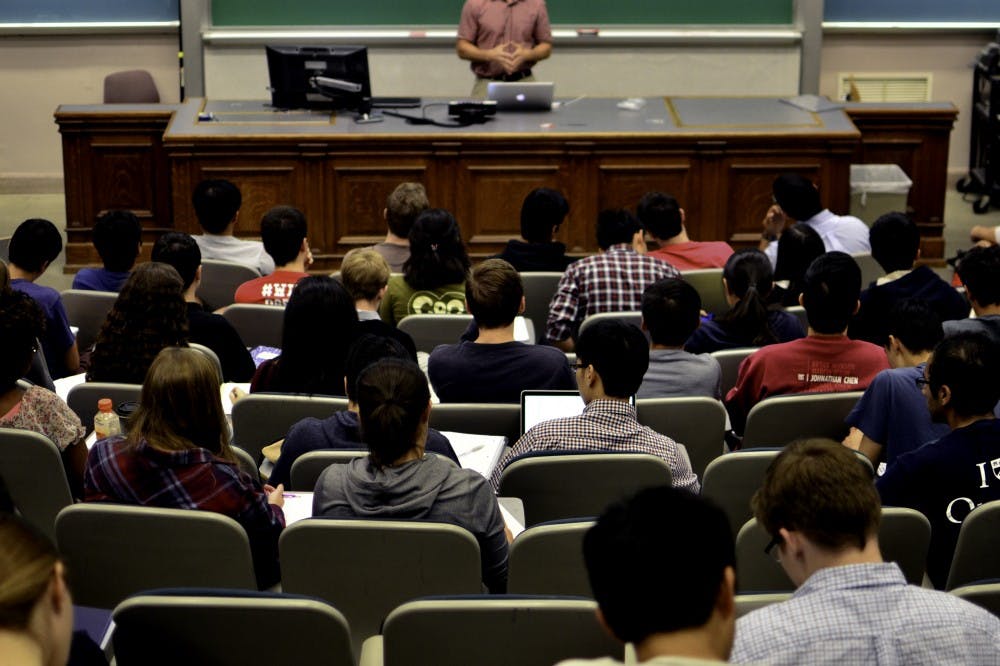
Satan is good. Although I'm a confirmed Roman Catholic, I’m happy to say that. Truthfully, I do love playing devil's advocate. And you should, too. Not because I love the devil, but because I think it can help everyone else. A devil's advocate is someone who "expresses a contentious opinion in order to provoke debate or test the strength of the opposing arguments." Their aim is to try and poke holes in a plan, proposal, or any sort of idea. Regardless of personal opinion, they challenge a proposition to show any potential weakness. A true devil's advocate doesn't challenge for the sake of challenging. They aim to improve a proposition by making sure any flaws are pointed out. Too often does group consensus lead to failure. If no one is willing to present an alternative, then mistakes and improvements are often overlooked.
The soul of academia comes from the absence of consensus. Einstein's theories owe their success to the pressure put on him to prove them. Galileo had to create spotless calculations to prove his theories to an unbelieving Church. Today, scientific journals must be reviewed by several scientists whose goal is to find any possible oversights. Throughout history, significant discoveries and advancements have been made and proven because of the scrutiny they were placed under. This same process should be applied in school.
At Penn, the classroom is often an echo chamber, with students regurgitating what is said by their peers and professors. Students often fall into the trap of accepting everything told to them. This is not to say that Penn students should suddenly not accept anything taught. It means Penn students should take an active role in what they are learning. This includes challenging what is being taught. Questioning your professor is not a bad thing. It forces an explanation that otherwise may never have been said.
Speaking up gives not only the benefit of an explanation, but allows other students to access that as well. It encourages interaction and discussion between students and professors. Playing the devil’s advocate encourages the active learning process that has been proven to enhance students' abilities to understand material. A similar effect can be applied between students. Challenge a friend's essay stance because it will help them make it better. Let your peers try and prove your thesis wrong so that you can make it better. Take adversity in stride and let it make you strive to improve.
Professor Michael Roberto, a Harvard University graduate, and Bryant University professor, is a big proponent of the devil's advocate. Roberto has shown that the absence of a devil's advocate can lead to decisions that often overlook or miss crucial improvements. But, Roberto does emphasize a "constructive" devil's advocate. This means asking questions that can lead to improvements or better ideas, not just trying to shut down proposals. This is an important distinction that many get wrong about playing the devil's advocate. It doesn't mean being obtrusive; in fact, it is intended to be the opposite.
Constructive devil's advocates will make their questions direct and clear, which can easily be tested against a specific hypothesis. It takes skill and intelligence to craft the right question, but the important part is that it presents a legitimate challenge to a certain idea. You may recognize a constructive devil’s advocate as being a form of the Socratic Method, which uses questions in order to expose a contradiction within an argument. Devil’s advocacy is a direct extension of the Socratic Method but doesn’t require a personal opinion in the debate, rather it encourages all members of a discussion to ask questions that challenge the presented idea.
The problem with students of today is that many fear to play the part of the devil's advocate. It requires a certain amount of confidence to argue against someone. It is especially tricky in a group situation where one runs the risk of being seen as obstructive to progress. But this is where playing the devil's advocate has the most value. Groups with a single leader tend to struggle when tasked with making the best decision.
Techniques taught in leadership courses show that having a devil's advocate in group decisions helps better outcomes come to fruition. It makes leaders better prepared for adversity and potential problems with their plans. It is our duty as students to ameliorate each other. Take the challenge of arguing against something to make it better. Have the courage to help your peers by making them prove and fight for something they believe in. Because if there's anything I am sure of, it's that the world could use a few more good decisions.

OTTO PIASECKI is a College Freshman from New York, N.Y. His email address is oabp@sas.upenn.edu
The Daily Pennsylvanian is an independent, student-run newspaper. Please consider making a donation to support the coverage that shapes the University. Your generosity ensures a future of strong journalism at Penn.
Donate




